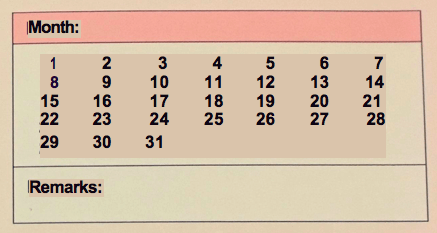The normal period
Every 28 days or so, the lining of the womb prepares itself to receive a fertilised ovum. If fertilization does not occur this lining is shed together with the blood that flows. This constitutes the period (menses)
The length of the period and the amount of blood lost vary a lot from one woman to another, but periods of up to 7 days are normal for most women.
When should your period be considered as abnormal?
Each individual woman has her own normal pattern. When this pattern changes for at least 2 to 3 periods, this can be considered as abnormal. One such abnormality is heavy periods.
When do you need to see the doctor?
You will need medical advice if your periods start to get longer, or bleeding gets heavier month to month — so you find that you need a lot more pads or tampons. You may have “menorrhagia” a medical term for abnormally heavy (but regular) periods. You should also see your doctor if your periods are irregular.
What causes heavy periods?
One cause is likely to be an alteration in the balance of the female sex hormones, which control the cycle of changes in the womb. The hormone balance is delicate and complicated and it is believed that the balance may be upset by a spell of poor health or personal worries. Heavy periods can also be due to other conditions.
How can your doctor help you?
Fortunately there are medicines that help to make periods normal again. But before your doctor decides on treatment he may need to know more about the length and heaviness of your period, and ask you to use the “menstrual calendar” on the other side of this leaflet. He will also question you about your health and look for clues to other possible causes. He may need to examine you or refer you to the specialist for tests.
How can you help your doctor?
- If your doctor asks you to use the “menstrual calendar”, be sure to mark it every day.
- If your doctor prescribes treatment straight away, follow the instructions faithfully.
- Tell the doctor if your periods get worse between visits, or if you have severe pains or other problems.
- Don’t stop treatment till you are told.
MENSTRUAL CALENDAR
 Use the chart below or any calendar available to record bleeding during periods
Use the chart below or any calendar available to record bleeding during periods
When your period starts, put a CROSS on that particular date, then another cross for every day of bleeding.
If bleeding is very heavy on a particular day (flooding or clots) put a circle around the cross.
If you bleed at all between periods, put a cross for that day.
CONTINUE WITH THE RECORDING FOR 3 — 4 CYCLES.
Use the remark space to record other information, such as the days when you have period pains.



Add a Comment